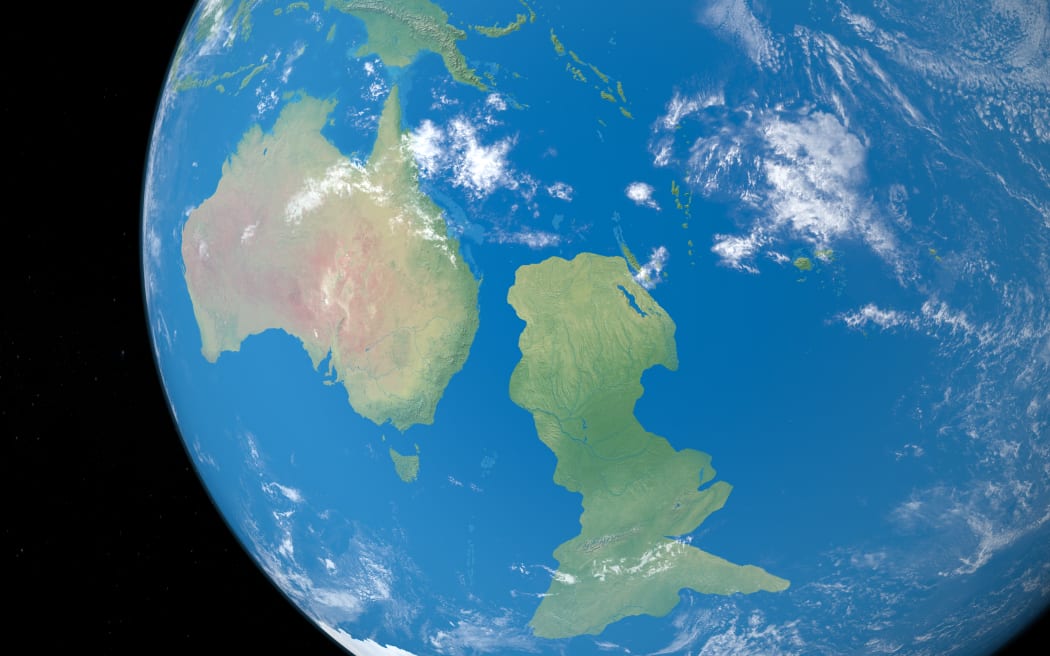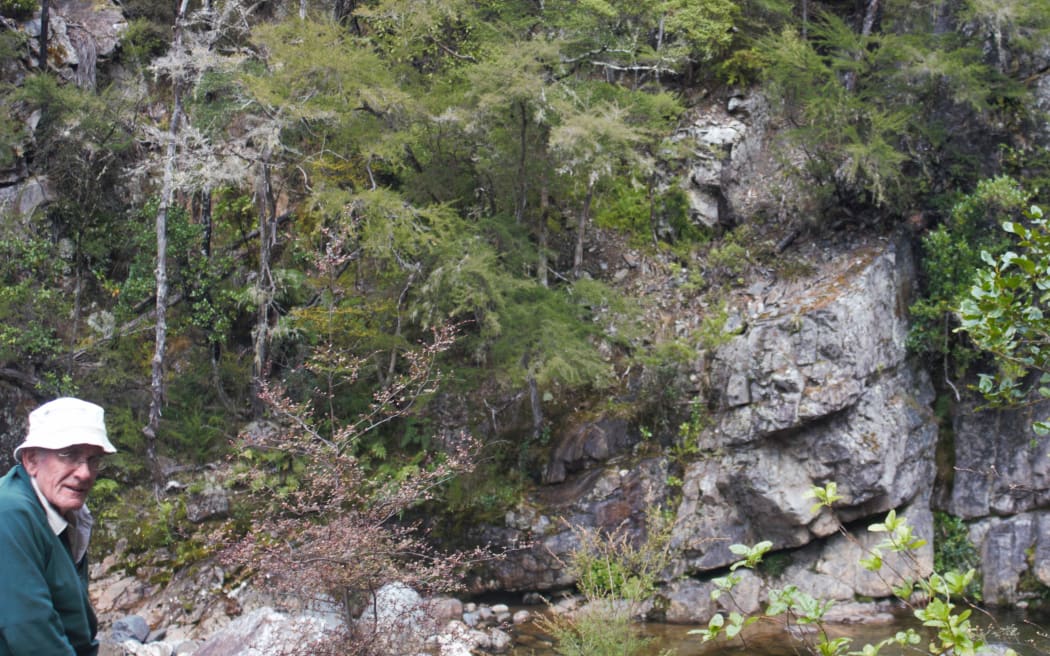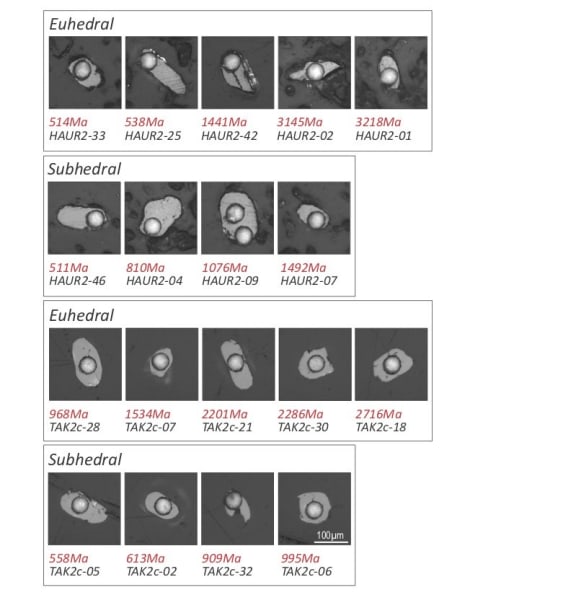NZ Could Be Billions Of Years Older Than First Thought

Kiwi geologists have discovered New Zealand could be billions of years older than previously thought.
New research by Dr Chris Adams, of Dunedin, and Dr Ross Ramsay, of Kerikeri, pours cold water on the notion of New Zealand as a geologically young country by suggesting it has an ancient, rocky core more than 3 billion years old.
Adams was part of a team several years ago which discovered New Zealand was not in fact a chain of islands, but part of a mostly submerged continent they dubbed Zealandia.
Until now Zealandia was believed to be relatively young - at most a billion years old - but the geologists found grains of the mineral zircon in sandstone near Tākaka they dated to more than three times that age.
Adams said the findings showed Zealandia had a core of "incredibly old" rocks, just like the Earth's other, better-known continents.
Previously, New Zealand's oldest known rocks had been found in the Cobb Valley, northwest of Nelson.
Dating back about 510 million years, the mix of volcanic rocks, sandstones, limestones and mudstones were known for their fossils of long-extinct marine creatures called trilobites.

Geologist Chris Adams with Wangapeka sandstone, near Tākaka in northwest Nelson, containing evidence of Zealandia's ancient origins. Photo: Supplied / Ross Ramsay
The pair's study homed in on Wangapeka sandstone in the same area, specifically the tiny grains of zircon contained within it.
Zircon is a rare and extremely durable mineral which contains trace amounts of radioactive uranium, which decays into lead over long periods of time.
Because that decay rate is precisely known, zircon can be dated using lasers and an analytical machine called a mass spectrometer.
The geologists found an "astonishingly high proportion", more than 20 percent, of zircon grains were more than 2 billion years old.
Some even dated as far back as 3.65 billion years.

Typical zircon grains with their ages in millions of years ('Ma'). Each grain is about 0.1mm across; the circle in the centre of each is a pit formed by a laser. Photo: Supplied / Chris Adams
The pair considered whether the grains could have come from Australia - which is known to have particularly ancient rocks - but given how pristine and unabraded the grains were, it was unlikely they could have been travelled thousands of kilometres from rock sources in western or central Australia.
That, plus evidence from rocks of the same age in Australia, led the pair to conclude the continent of Zealandia must have an ancient "basement" consisting of rocks of 500-650 million and 1-1.1 billion years old.
Those rocks were then uplifted in the Paleozoic era and eroded, providing the zircon grains found in the sandstone.
They also concluded there must be an even more ancient, and very local, continental block in northwest Nelson with rocks dating back more than 3 billion years.
About 95 percent of Zealandia was now underwater, with only a few high points - notably New Zealand and New Caledonia - protruding above the ocean.
One of the arguments previously raised against Zealandia as the Earth's eighth continent was that every continent - expect, it seemed, Zealandia - had a core of extremely old rocks.
Zircon found in western Australia, for example, had been dated to more than 4 billion years ago.
"So this places Zealandia very much in the mainstream of all continents. Australia, Africa, America, Antarctica, they all have very old cores going back 3000, 4000 million years," Adams said.
"This data suggests Zealandia is joining the continental club by having a characteristic older core. Even though it's only known to have been exposed in a small area, it's still a crucial piece of information."
Adams said the finding "dramatically extended" New Zealand geology.
"We've gone from the oldest known fossil rocks, 510 million years old, to extremely ancient rocks, which are at least 2500 million years old, and go back even to 3.5 billion years. So Zealandia is definitely older than you think."
The study, titled 'Archean and Paleoproterozoic zircons in Paleozoic sandstones in southern New Zealand: evidence for remnant Nuna supercontinent and Ur continent rocks within Zealandia', is published in the Australian Journal of Earth Sciences.
Kiwi geologists have discovered New Zealand could be billions of years older than previously thought.
New research by Dr Chris Adams, of Dunedin, and Dr Ross Ramsay, of Kerikeri, pours cold water on the notion of New Zealand as a geologically young country by suggesting it has an ancient, rocky...
Kiwi geologists have discovered New Zealand could be billions of years older than previously thought.
New research by Dr Chris Adams, of Dunedin, and Dr Ross Ramsay, of Kerikeri, pours cold water on the notion of New Zealand as a geologically young country by suggesting it has an ancient, rocky core more than 3 billion years old.
Adams was part of a team several years ago which discovered New Zealand was not in fact a chain of islands, but part of a mostly submerged continent they dubbed Zealandia.
Until now Zealandia was believed to be relatively young - at most a billion years old - but the geologists found grains of the mineral zircon in sandstone near Tākaka they dated to more than three times that age.
Adams said the findings showed Zealandia had a core of "incredibly old" rocks, just like the Earth's other, better-known continents.
Previously, New Zealand's oldest known rocks had been found in the Cobb Valley, northwest of Nelson.
Dating back about 510 million years, the mix of volcanic rocks, sandstones, limestones and mudstones were known for their fossils of long-extinct marine creatures called trilobites.

Geologist Chris Adams with Wangapeka sandstone, near Tākaka in northwest Nelson, containing evidence of Zealandia's ancient origins. Photo: Supplied / Ross Ramsay
The pair's study homed in on Wangapeka sandstone in the same area, specifically the tiny grains of zircon contained within it.
Zircon is a rare and extremely durable mineral which contains trace amounts of radioactive uranium, which decays into lead over long periods of time.
Because that decay rate is precisely known, zircon can be dated using lasers and an analytical machine called a mass spectrometer.
The geologists found an "astonishingly high proportion", more than 20 percent, of zircon grains were more than 2 billion years old.
Some even dated as far back as 3.65 billion years.

Typical zircon grains with their ages in millions of years ('Ma'). Each grain is about 0.1mm across; the circle in the centre of each is a pit formed by a laser. Photo: Supplied / Chris Adams
The pair considered whether the grains could have come from Australia - which is known to have particularly ancient rocks - but given how pristine and unabraded the grains were, it was unlikely they could have been travelled thousands of kilometres from rock sources in western or central Australia.
That, plus evidence from rocks of the same age in Australia, led the pair to conclude the continent of Zealandia must have an ancient "basement" consisting of rocks of 500-650 million and 1-1.1 billion years old.
Those rocks were then uplifted in the Paleozoic era and eroded, providing the zircon grains found in the sandstone.
They also concluded there must be an even more ancient, and very local, continental block in northwest Nelson with rocks dating back more than 3 billion years.
About 95 percent of Zealandia was now underwater, with only a few high points - notably New Zealand and New Caledonia - protruding above the ocean.
One of the arguments previously raised against Zealandia as the Earth's eighth continent was that every continent - expect, it seemed, Zealandia - had a core of extremely old rocks.
Zircon found in western Australia, for example, had been dated to more than 4 billion years ago.
"So this places Zealandia very much in the mainstream of all continents. Australia, Africa, America, Antarctica, they all have very old cores going back 3000, 4000 million years," Adams said.
"This data suggests Zealandia is joining the continental club by having a characteristic older core. Even though it's only known to have been exposed in a small area, it's still a crucial piece of information."
Adams said the finding "dramatically extended" New Zealand geology.
"We've gone from the oldest known fossil rocks, 510 million years old, to extremely ancient rocks, which are at least 2500 million years old, and go back even to 3.5 billion years. So Zealandia is definitely older than you think."
The study, titled 'Archean and Paleoproterozoic zircons in Paleozoic sandstones in southern New Zealand: evidence for remnant Nuna supercontinent and Ur continent rocks within Zealandia', is published in the Australian Journal of Earth Sciences.










Leave a Comment